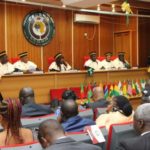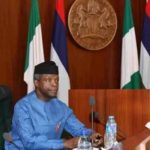Ohanaeze Ndigbo has faulted President Muhammadu Buhari’s claim that the Nigerian Army was ‘soft’ on Biafrans during the civil war.
The apex socio-political body of the Igbo described Buhari’s comments as ‘hate speech’ against Ndigbo.
Buhari made the claim during his investiture as Grand Patron of the Nigerian Red Cross Society at the Presidential Villa, Abuja.
Recalling the role of the Red Cross during the war, Buhari had said, “I remember with nostalgia the performance of the Commander-in-Chief, General Yakubu Gowon. Every commander was given a copy of the Commander-in-Chief’s instructions that we were not fighting enemies but that we were fighting our brothers. And thus, people were constrained to show a lot of restraint.”
Buhari’s claim angered Ohanaeze Ndigbo and some other pan-Igbo groups including the Movement for the Actualisation of the Sovereign State of Biafra, who accused the President of attempting to re-write history.
Speaking with our correspondent in Enugu, the National Publicity Secretary of Ohanaeze, Prince Uche Achi-Okpaga, described the President’s statement as ‘hate speech’ against the Igbo.
Reacting to the comment, he said, “If not for presidential immunity, I would have sued the President right away. Yes, because what he said was hate speech tailored to spite Ndigbo.
“It is a deliberate unpresidential speech that was made to add insult to our injuries. As the President, he should choose his words properly.”
Achi-Okpaga noted that Buhari did not say the truth when he claimed that the Nigerian Army was soft on Biafra.
“In what aspect did they treat us as brothers and sisters? In a civil war that they killed over three million Igbo, would he have wiped out the entire Igbo race?
“Instead of facing the Biafran combatants, they committed genocide, raped and killed innocent women and children.
“They blocked all international aid organisations to ensure that we did not get medical attention and starve us to death.
“What deadly measure did they not apply?” he wondered.
The harsh treatment of the Biafran side continued even after the war, Achi-Okpaga observed.
“As if all that was not enough, the post-war policies followed. No matter the amount of money an lgbo man had in his bank account before the war, he was given only twenty pounds. Civil servants of lgbo descent, who survived the war were not reinstated. The same in the military and the police.”
Source: Punch



